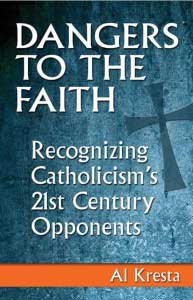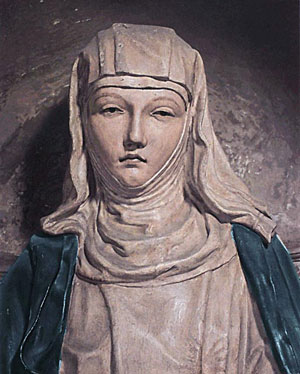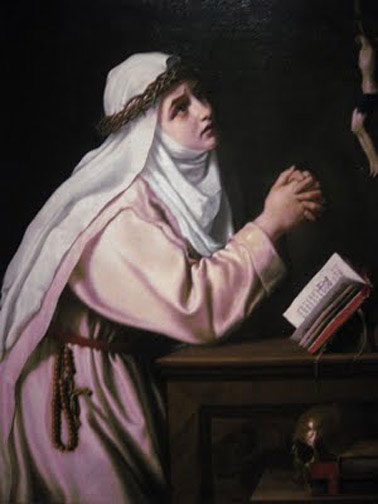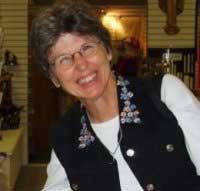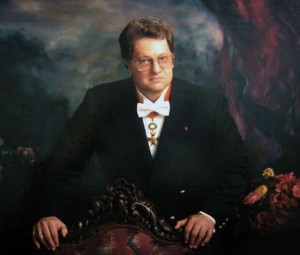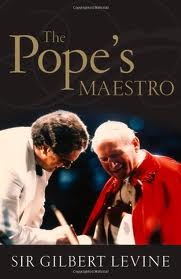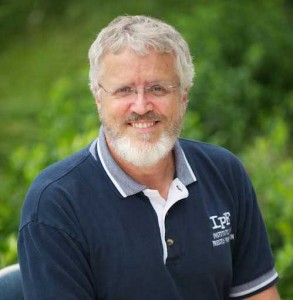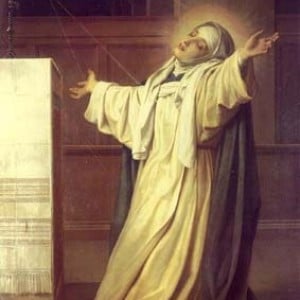Podcast: Play in new window | Download (Duration: 3:05 — 2.8MB) | Embed
Subscribe: Apple Podcasts | Spotify | Amazon Music | Android | Pandora | iHeartRadio | JioSaavn | Podchaser | Gaana | Podcast Index | Email | TuneIn | Deezer | Anghami | RSS | More
Day 8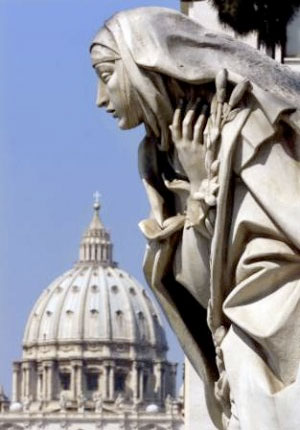
To Queen Giovanna of Naples (written in trance):
We have three chief foes. First, the devil, who is weak if I do not make him strong by consenting to his malice. He loses his strength in the power of the Blood of the humble and spotless Lamb. The world with all its honors and delights, which is our foe, is also weak, save in so far as we strengthen it to hurt us by possessing these things with intemperate love. In the gentleness, humility, poverty, in the shame and disgrace of Christ crucified, this tyrant the world is destroyed. Our third foe, our own frailty, was made weak; but reason strengthens it by the union which God has made with our humanity, arraying the Word with our humanity, and by the death of that sweet and loving Word, Christ crucified. So we are strong, and our foes are weak.
Heavenly Father, your glory is in your saints. We praise your glory in the life of the admirable St. Catherine of Siena, virgin and doctor of the Church. Her whole life was a noble sacrifice inspired by an ardent love of Jesus, your unblemished Lamb. In troubled times she strenuously upheld the rights of His beloved spouse, The Church. Father, honor her merits and hear her prayers for each of us. Help us to pass unscathed through the corruption of this world, and to remain unshakably faithful to the church in word, deed, and example. Help us always to see in the Vicar of Christ an anchor in the storms of life, and a beacon of light to the harbor of your Love, in this dark night of your times and men’s souls. Grant also to each of us our special petition . . . (pause to pray for your own intentions). We ask this through Jesus, your Son, in the bond of the Holy Spirit. Amen.
St. Catherine of Siena, Pray for us.
For the complete novena visit the St. Catherine of Siena Novena Page

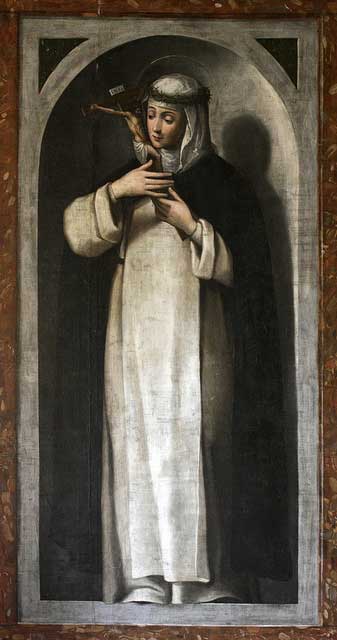
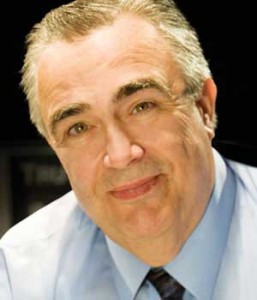 Catholicism’s 21st Century Opponents” in his newest book published by Our Sunday Visitor. The secular world has presented many twisted versions of the “Truth” over the years: from New Age thought to Isalm, Scientism to Consumerism, Oprah and Shirley to Bart Erhman and Carl Sagan. Al Kresta challenges the “opponents” of faith with Christ-like love and wisdom. In the process, he teaches us all how to evangelize as a true disciple of Christ.
Catholicism’s 21st Century Opponents” in his newest book published by Our Sunday Visitor. The secular world has presented many twisted versions of the “Truth” over the years: from New Age thought to Isalm, Scientism to Consumerism, Oprah and Shirley to Bart Erhman and Carl Sagan. Al Kresta challenges the “opponents” of faith with Christ-like love and wisdom. In the process, he teaches us all how to evangelize as a true disciple of Christ. 